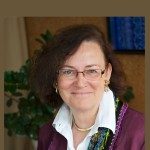Présentation
Severe to profound deafness affects one in 700 newborns. This disability also affects an additional one child in 1000 before adulthood, and 2.3% of the general population between 60 and 70. Moreover, 40% of people over 65 suffer from hearing loss, which impedes conversational exchange. Of note, about 10% of children affected by severe to profound congenital deafness suffer from Usher syndrome type I.
Our laboratory has overcome many of the difficulties encountered by linkage analysis for deafness by studying large consanguineous deaf families living in distinct geographic regions of several countries bordering the Mediterranean Sea, including Tunisia, Lebanon and Jordan. We have a long-standing experience in the search for genes associated with deafness. Indeed, we identified the first causative gene for an olfactory defect (Kallmann’s syndrome) andhave combined candidate gene approaches with linkage analysis to identify more than 20 causative genes for hearing impairment. These analyses have shown that the vast majority of cases of severe to profound congenital deafness are hereditary. A defect in connexin-26 (DFNB1) accounts for one third to half of cases in our cohort of families from countries bordering the Mediterranean Sea. We are continuing the search for genes responsible for early onset forms of deafness, and are pursuing and extending our collaboration with scientists and physicians in North African countries. In addition, we have broadened our search to genes responsible for late-onset sensorineural deafness (presbycusis).

